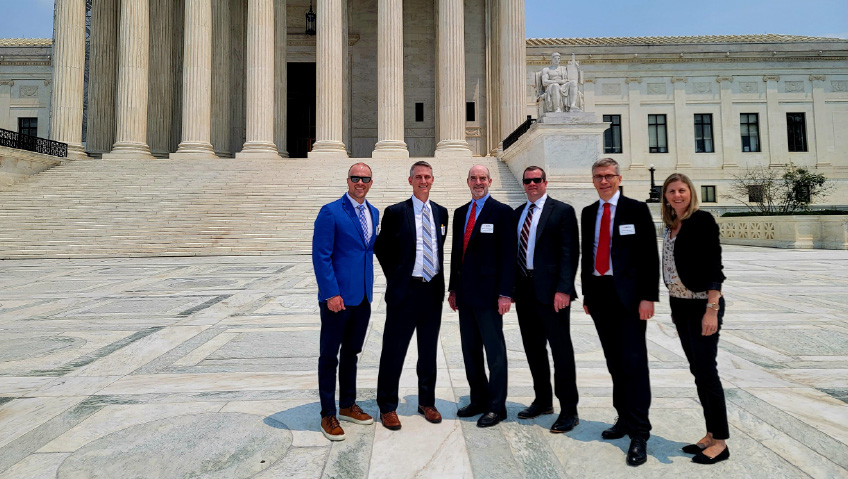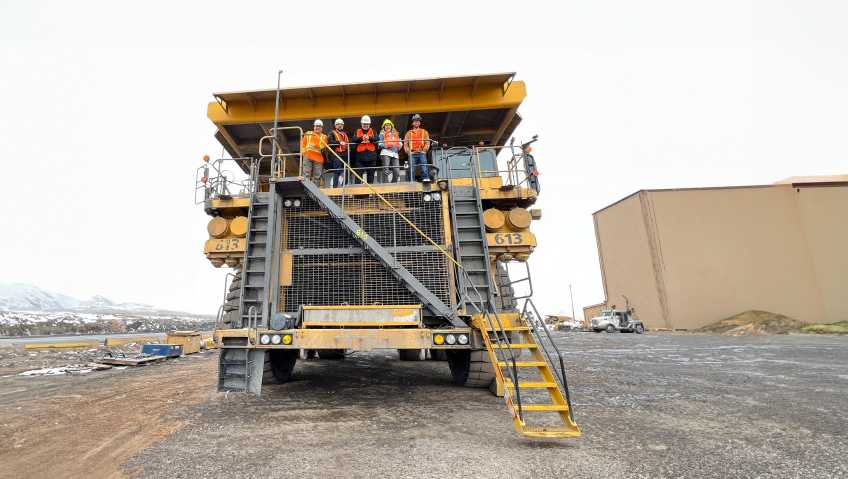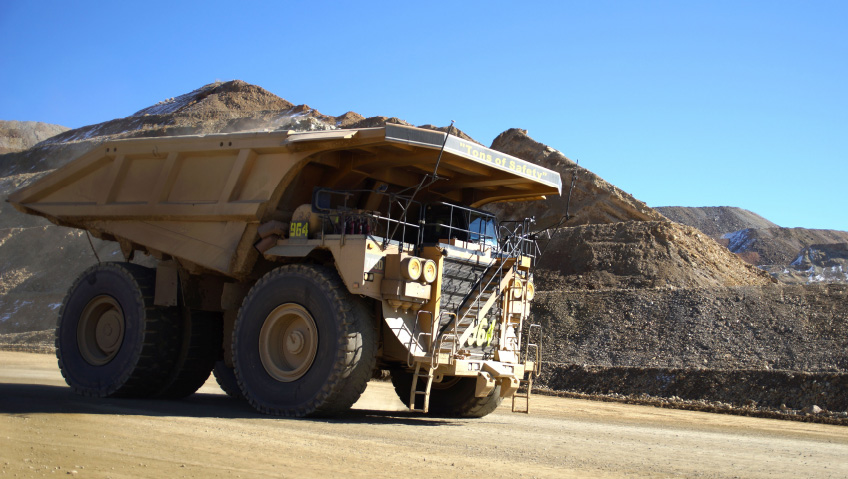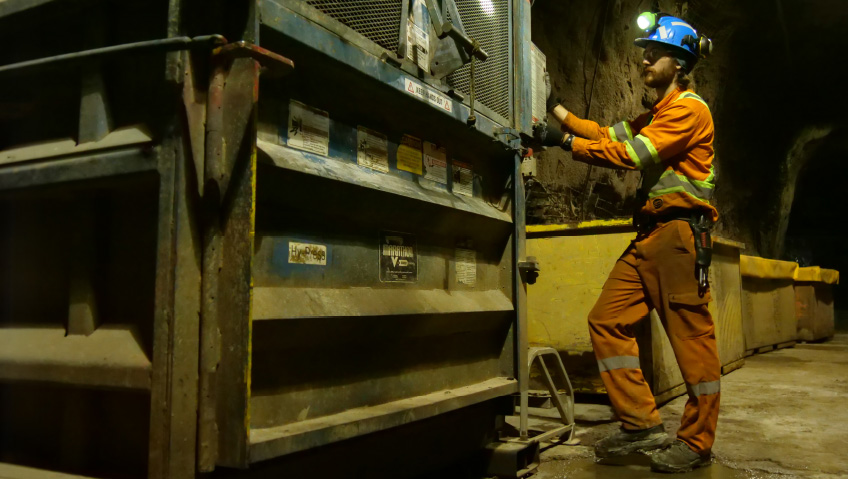The luckiest among us will never have to face a major crisis through the course of our careers. Many people may face one professional calamity; the chances of dealing with more than one are very slim. Yet Terry Dale has done exactly this and still approaches his work with a cheerful sense of humor and optimism.
Dale is President of USTOA, the United States Tourism Operators Association. The association, based in New York City, has members around the world, and every one of those members was affected to an unprecedented extent by the COVID-19 pandemic. But this was not the first time Dale had led an organization through an unthinkable storm.
“On September 11, 2001,” he recalls, “my job was to promote tourism for New York City. I figured that a person would only experience something that extreme once in their career. I thought I’d ‘checked that box.’ Then COVID hit, and it was 10 times harder. After 9/11, the whole world wanted New York to come back better and stronger. With COVID, the whole world was impacted.”
Dale’s team at USTOA is small but mighty. “We have a team of five people, and I think we do magic,” he says. “I have the most amazing colleagues; we all know the job we need to do and get it done. We’re lean and mean.”
Together, that team delivers a wide range of services to both members within the industry and the traveling public. It maintains a member directory for tourists seeking travel experiences. This provides a level of assurance to travelers, as a tourism operator that is a member of USTOA must follow the organization’s principles of professional conduct and ethics.
USTOA also manages a travelers’ assistance trust fund, to which every member is required to post $1 million in security. This fund protects consumers in the event of an operator’s bankruptcy or insolvency, helping to ensure they are not left stranded or empty-handed.
For its members, USTOA provides opportunities to network, do business with, and learn from each other. The organization has about 900 members, including the 63 National Parks across the United States, and over 140 destination marketing organizations around the world.
Dale is adamant that the organization’s goal is not to have the most members, but rather the right members.
“We have no aspiration to be the largest tourism organization,” he shares. “At the core of USTOA is integrity. We align ourselves with businesses that share that integrity, ones that provide customers with the experience they deserve.”
In addition to the alignment in values, USTOA’s membership goals strive to meet the demand of the traveling public. “We look to create a global balance. We look at where our members are taking American travelers, and we work to identify partners and suppliers in those countries to consider.”
When Dale joined USTOA 12 years ago, his first mandate was to increase the level of advocacy on the part of the industry.
“The board’s first request and priority was that we have a stronger voice in Washington—one that would help tell our story and educate the government about the industry. Of course, that voice is more credible when it comes from an industry member, rather than a ‘paid spokesperson,’ and we’ve done well at engaging our members on that front. Whether it’s the Department of Transportation, the State Department, or elected officials, we show them how what they do can have a positive or negative impact on the travel industry.”
To engage its members even more actively, USTOA hosts an annual conference every December. Tour operator members must be represented at that event; the workshops and symposia provide ongoing education and support in growing their businesses in a way that reflects the integrity for which USTOA stands.
Understandably, the connections and relationships that have been built between USTOA members at these events became even more important in early 2020. The industry was hit with the biggest crisis it had ever faced, and the members rallied to support each other.
“Early in the pandemic, USTOA moved to create a channel for dialogue between members, to give them the chance to say, ‘How are you dealing with ‘X?’ and, ‘What can we learn from each other?’ The beauty of our members is their willingness to share. In a pandemic, you don’t compete; you want to survive.”
USTOA’s track record for advocacy and relationships in Washington was also important during the worst of the pandemic. The organization was present in Washington, championing the needs of member companies and industry employees when it came to funding and other support programs.
The organization’s members and its membership were remarkably resilient. “We didn’t lose one single member through COVID—not one. But it wasn’t just because of USTOA. It was because our members are solid, sound business people. They had the foundations to get through even that and to bounce back.”
Every cloud has a silver lining, and for Terry Dale, it is the relationships that were formed in crisis but persist to this day. “The pandemic created a stronger community, and that community continues to talk with each other. There’s more conversation, more dialogue between members than ever.”
The association celebrated its 50th anniversary in 2022, a milestone that provided an opportunity to look back and to look forward. When asked about the future priorities for the organization, its members, and the industry as a whole, Dale names diversity, equity, and inclusion (DEI) and sustainability as chief among them.
“DEI is a big hurdle as an industry, and it’s longer-term,” he says. “We’ve got to be able to get staff, leadership, and customers who are more diverse. That will take time but we’re moving in that direction.”
One vehicle through which USTOA puts its commitment to promoting DEI into action is Tourism Cares, the organization’s charitable foundation. Tourism Cares supports community initiatives across the United States and around the world, through grants to social enterprises and other mission-driven organizations and projects. One such initiative is the Black Tourism Talent Directory, developed by the National Blacks in Travel and Tourism Collaborative.
Tourism Cares also promotes global conservation initiatives, aligning itself with USTOA’s drive to promote sustainability in the travel and tourism industry. Worldwide, the industry’s environmental impact is a significant one. When operators make choices that have a lesser impact, the ripple effects are multiplied powerfully.
“On the sustainability front, a lot of our members are making really good progress. Some members have become B Corp Certified. That’s the gold standard; it really shows that they’re committed to doing the right things.”
When it comes to promoting sustainability or DEI, Dale makes it clear that USTOA’s role is not to mandate actions on the part of its members or to dictate what steps they should take; it is more about celebrating accomplishments that can inspire and motivate others, and providing guidance, no matter where a member may be starting.
“No one has the answer; I certainly don’t,” he says. “Every company has to figure out what works best in their business model. My job is to provide resources to members to start their journey and to support them as they take steps in the right direction.”
There is one development being felt in every industry, and tourism is no exception: the explosive growth in artificial intelligence (AI) technologies. What impact will AI have on travel and tourism?
“I don’t have the answer,” Dale laughs. “I do believe that we shouldn’t approach it as a threat though. Instead, we need to figure out how we can use it as an opportunity.”
The widespread adoption of AI will undoubtedly create changes in the way people research destinations and book travel, and that is why Dale sees USTOA’s role as one of education and advocacy.
“It’s easy to use online tools to get basic itineraries and information, but there are nuances when you deal with a real person to help you create the travel experience. AI doesn’t necessarily know that local person who makes arts and crafts or the person who knows the real history of the place.”
The risks can be more serious than just poor information, though. “You can use AI to book travel if you want but, if you’re somewhere else in the world, you’re on your own. If a pandemic happens or a 9/11 happens, you need an advocate—somebody to help you get to safety and security.”
There is no question that travel will continue to hold a magical allure. Seeing new sights, experiencing different cultures, and learning about places far from home are nearly universal human desires. In the future, USTOA will continue to protect the traveling consumer and provide support for tourism businesses around the world but, in that work, Dale sees a larger role for USTOA: one that can quite literally help to create a better world.
“We have a responsibility to create meaningful, purposeful travel. As an industry, we have tremendous economic power; how we decide to spend that economic power is critically important. We need to find communities around the world that we want our customers to experience from an educational and inspirational perspective. Our dollars can go so far in those neighborhoods.”
Naturally, for USTOA, it is not about directing where the traveling public may go. It is about making sure that, wherever they choose to go, they have the best possible experience.
“People are always going to go to Italy, and that’s great, but if you’re considering going to Ethiopia, USTOA should have a network of experiences in Ethiopia. Ones that can help community-based organizations and businesses and will have a meaningful impact on people’s lives.”






